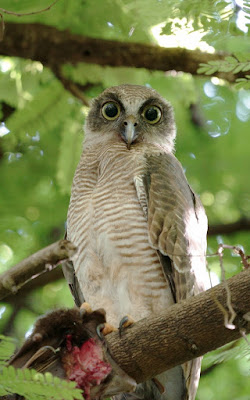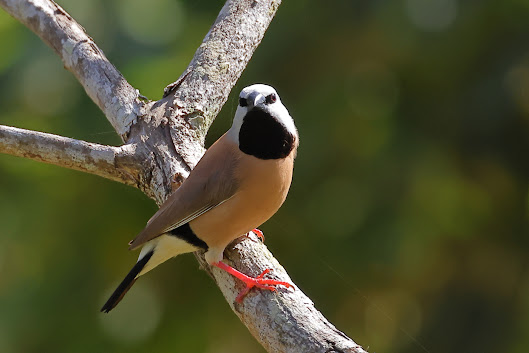About 2.5 million years ago some honeyeaters split and created identity puzzles playing out in Townsville mangroves every day. Three species now: Mangrove Honeyeater (Gavicalis fasciogularis), Singing Honeyeater (G. virescens) and, above, Varied Honeyeater (G. versicolor).
Mangrove Honeyeaters, above, and Varieds were for many years thought to be variations of one species, yellower and larger to the north (of Townsville, as it turns out), less coloured and smaller to the south (to northern NSW). Singing Honeyeaters, sisters to Mangroves, but more distantly related to Varieds, took all the rest of Australia.
So,Varieds in Rowes Bay mangroves, north Townsville; Mangroves in Ross River mangroves 5km away in Townsville south. No mangroves in between. Iffy old reports of each being seen hundreds of kilometres on the wrong side of Townsville. Not iffy, and bearing on the present puzzle, genetic evidence of one-way traffic from Varieds to Mangroves. Thus, above two birds, seen in close interacting company this week south of Ross River (Mangrove HE territory), may be closer related than appearances suggest. (Too late for me, birding future will surely bring fast analysis in the field from droppings or feathers.)


















